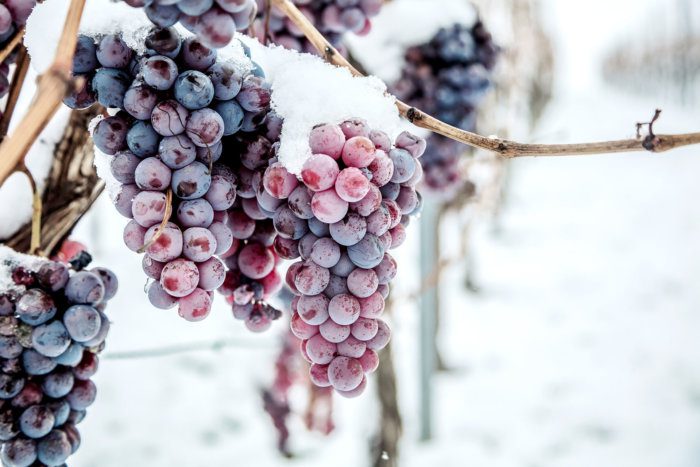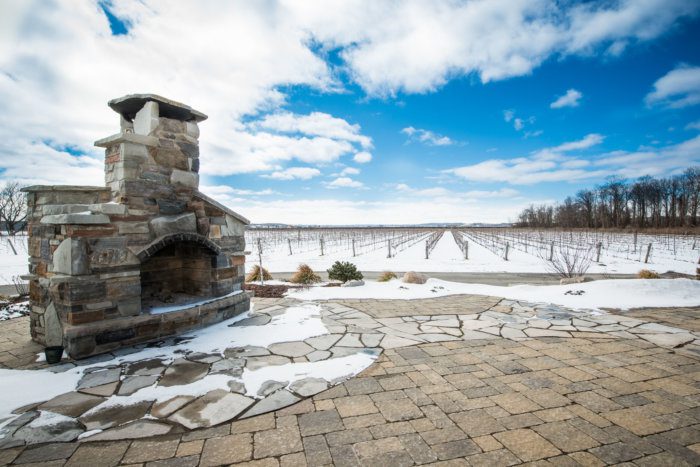Posted : January 19, 2022
Our blog is chock full of great ideas for fun things to see and do in York Durham and Headwaters. We are always adding new content and updating old posts, but sometimes you might stumble upon something from our vault. If this article has inspired you to hit the road, be sure to double-check that the featured stops in this post are still welcoming visitors.
The consensus among those who write “What the H___ is Ice Wine?” articles (and there are many) is that German winemakers stumbled on the process some time in the late 18th century after an early frost ruined a crop. The frozen grapes were pressed anyway, and it was discovered that the pulp had a wonderfully sweet and acidic taste. Distillation produced a rough ancestor of what we celebrate today as Canada’s most honoured consumable export (along with maple syrup).
Some historians believe the ancient Romans developed ice wine, and they did have a lot of Gaul [pun intended] where the climate would have been suitable. Maybe the recipe was translated from Latin.
In any case, eiswein was produced occasionally in central Europe through the 19th century. Once knowledge had grown and technology had developed sufficiently in the late mid 20th century, ice wine making was formalized and regulated, now by the VQA (Vintners Quality Alliance).
In Ontario, frozen grape picking can only take place when the outdoor temperature is less than -8°C. In December and January picking crews, often made up of enthusiastic volunteers, are on call for the urgent overnight harvest. VQA Ontario agents are on hand to monitor the ambient temperature.

Regulations also mandate a certain sugar content (called must weight) which, through the fermentation process, will determine the alcohol content of the wine. Fermentation is slower than for other wines, sometimes taking months, and only certain strains of yeast can be used to process the harvest.
The Trials and Tribulations of Ice Wine production
- Because grapes must hang on the vine for months after they would normally be harvested, a great many may be lost to animals and birds (nets are now used to protect the vines).
- Grapes can rot on the vine before the temperature allows picking, although a certain kind of fungus, called noble rot, is considered beneficial.
- A severe frost can destroy the grapes completely.
- Frozen grapes must be pressed immediately after picking before thawing ruins cellular integrity and dilutes the pulp.
- Only certain grapes (called varietals) lend themselves to ice wine production. Among them are Vidal (most popular in Ontario), and Riesling (most popular in Germany). Other varieties are used experimentally.
Such an intense and perilous activity and the relatively low yield of juice from frozen grapes makes ice wine production a very ambitious undertaking. Prices for ice wines, of course, reflect the difficulty of the process.
With all of that, Ontario and York Durham Headwaters producers have risen to the challenge and their ice wines have received top awards at competitions around the world. Our growers continue to strive for perfection and it is an industry we should be proud of.
Ice wines are usually served as dessert wines, often with cheeses or pastries.
We must note that iced cider is also produced in YDH. The process is similar and the product is equally delightful.
Here are some of the YDH ice wine (and iced cider) makers you can visit:

by Rob Morphy